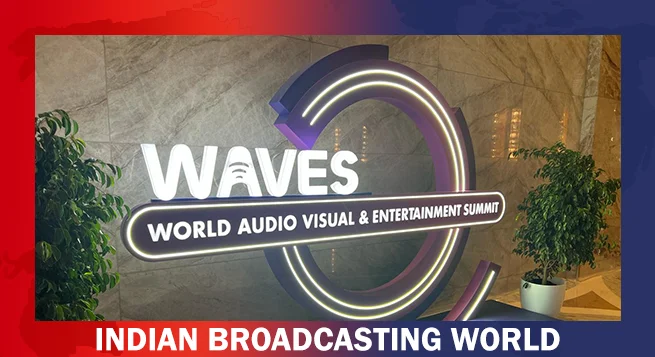A parliamentary panel has — while acknowledging that cable TV subscriber base in India has been declining over the years — suggested the government and sector regulator TRAI take various corrective measures through collaborative measures with stakeholders, and recommended framing of a comprehensive set of regulations addressing the concerns of the cable industry.
Indian parliament’s Standing Committee on Communications and Information Technology in its 56th report on ‘Regulation of Cable Television in India’ made a series of recommendations, including that the Ministry of Information and Broadcasting (MIB) be made the registering authority for cable operators instead of the area of operation’s local post offices.
The committee, comprising MPs from both Lok Sabha and Rajya Sabha, noted that the cable TV industry is regulated through not only multiple Acts, rules, guidelines, etc., but there are also “multiple regulatory bodies” like MIB, TRAI, DoT, etc.
“As submitted by MIB, there is an urgent need for creating a level playing field for all broadcasting services as well as for addressing the need of satellite-based technologies, which are being regulated through the old legislation,” the panel’s report noted, adding it is of the opinion that cable TV industry needs to be regulated through a comprehensive set of rules.
It recommended that the MIB should ensure that the proposed Broadcasting Services (Regulation) Bill, 2023 “sees the light of the day at the earliest” since it will go a long way in resolving the concerns of the cable TV industry.
However, the committee also impressed upon the MIB to ensure that adequate consultations are done with all the stakeholders concerned while bringing in a comprehensive Bill through constructive discussions and it be apprised of the timeline for the Broadcasting Services (Regulation) Bill’s tabling in the Parliament.
Taking cognisance of under-reporting of cable TV subscribers, the parliamentary panel suggested MIB collaborates with the Ministry of Electronics and Information Technology to develop a comprehensive “digital solution” for addressing underreporting among cable TV subscribers and the absence of an oversight mechanism.
“This solution should include an advanced digital platform with robust data analytics tools to detect and mitigate underreporting, real-time reporting features, standardized data protocols and regular audits for ongoing effectiveness,” the panel noted.
Further, due to conflicting positions presented by the All India Digital Cable Federation (AIDCF), an industry lobbying body of MSOs, and sector regulator TRAI during the deliberations of the parliamentary panel, the report urged both parties to “engage in constructive dialogue and enhance mutual understanding before presenting their respective facts to the Committee”.
However, the parliamentary panel expressed its unhappiness regarding the way TRAI handled the pricing issue of TV channels vis-à-vis the distributors.
“The Committee acknowledge(s) the complexity involved in determining channel pricing due to various factors influencing costing. Nevertheless, it emphasizes that TRAI holds a shared responsibility to ensure consumers receive services at a fair price,” the rep[ort stated.
It added that given TRAI‘s pivotal role in fostering a healthy and competitive telecommunications and broadcasting ecosystem, a collaborative effort is adopted among all stakeholders to address all the issues.
The report also dwelt on other important issues like demarcation in the advertising guidelines between pay TV and FTA television channels, stating that there was a need for a “thoughtful examination” of such issues to safeguard consumer interests.
It suggested categorization of TV channels as either pay TV or FTA, based on the respective sources of revenue.
The report observed there was a need to rectify the existing disparity between cable TV and OTT platforms, especially in terms of content availability.
Hailing the parliamentary panel report as an endorsement of AIDCF stand on various contentious issues, the organisation’s president Peeush Mahajan expressed gratitude to the MPs for examining matters in great detail and suggesting remedial measures through a comprehensive report.

“The Committee has correctly observed that the cable TV industry has been seeing a steady decline and is struggling for its survival, majorly due to the drastic increase in prices of pay TV channels (in some cases as high as 600 percent) by the broadcasters in the last 4-5 years. Coupled with the price hikes, the broadcasters have also forced bundling of their channels on the consumers, which has effectively robbed them of the freedom of choice,” Mahajan noted in a media statement yesterday.
He added: “Consumers have been forced to opt for bouquets of channels, which have a few popular channels bundled with channels that are not as popular and not relevant to the specific market.”
The AIDCF president also exhorted TRAI to bring in a “holistic consultation and resolve the issues”, as recognised by the parliamentary committee, “at the earliest” so that it ensures the survival of lakhs of people employed in the sector.
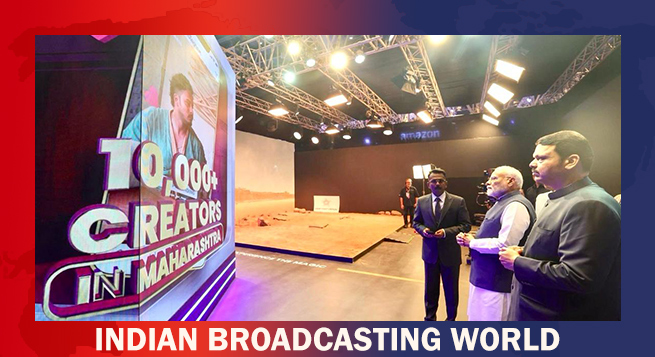 MIB to unveil M&E sector statistical handbook today at WAVES
MIB to unveil M&E sector statistical handbook today at WAVES 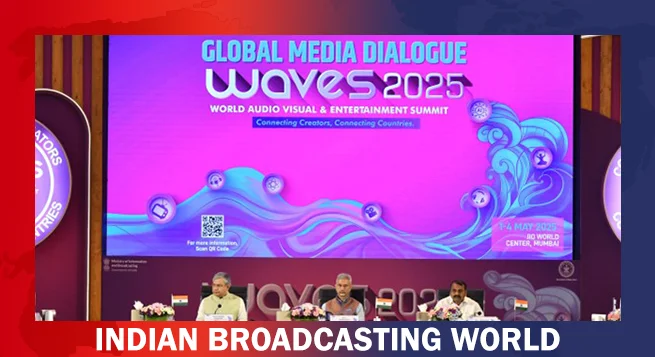 WAVES 2025: Media dialogue backs creativity, heritage & ethics in AI Era
WAVES 2025: Media dialogue backs creativity, heritage & ethics in AI Era 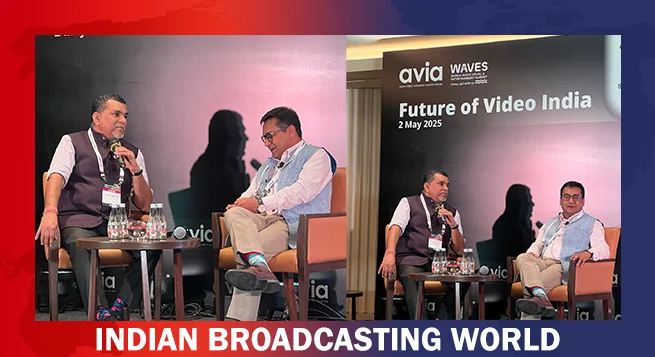 Pay TV leaders chart course for India’s linear TV in digital age
Pay TV leaders chart course for India’s linear TV in digital age 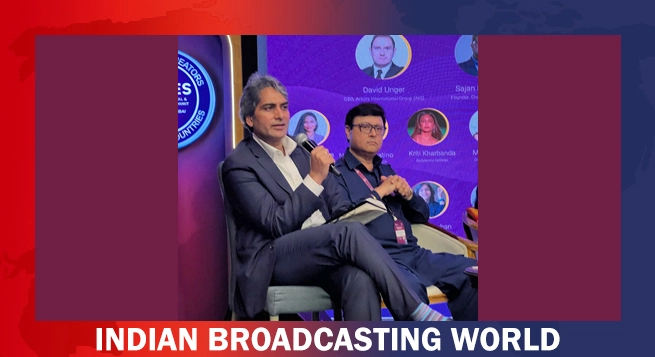 Sudhir Chaudhary announces new show for DD News, says “Good content still has a place” at WAVES 2025
Sudhir Chaudhary announces new show for DD News, says “Good content still has a place” at WAVES 2025 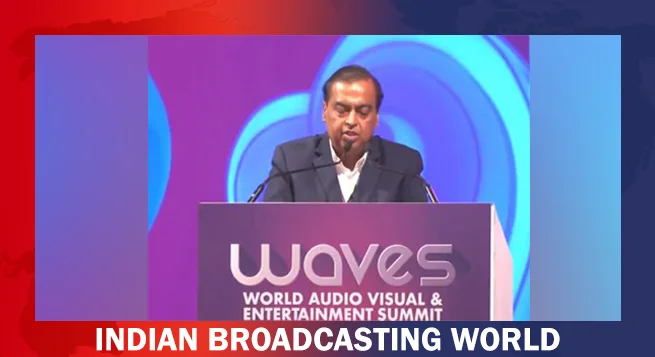 India can lead global entertainment revolution: Mukesh Ambani
India can lead global entertainment revolution: Mukesh Ambani 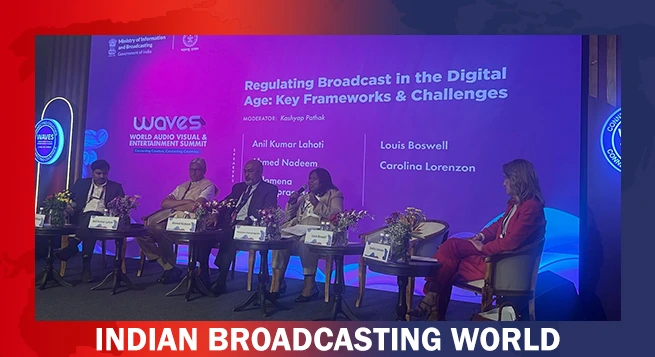 TRAI chief not in favour of separate rules for OTT, legacy b’casters
TRAI chief not in favour of separate rules for OTT, legacy b’casters 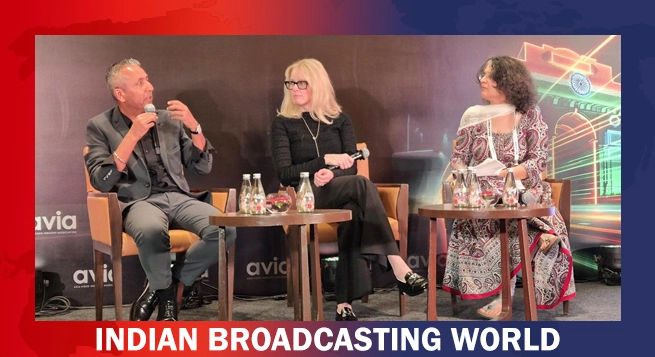 Prime Video reaffirms theatres’ appeal & India, global strategy at Avia’s FoV
Prime Video reaffirms theatres’ appeal & India, global strategy at Avia’s FoV 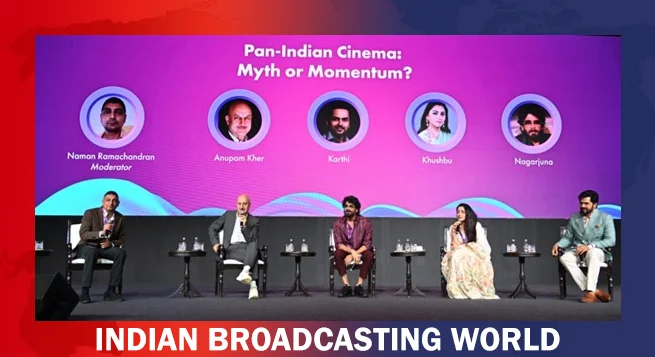 Language no bar; stars say Indian cinema is united by emotion, culture
Language no bar; stars say Indian cinema is united by emotion, culture 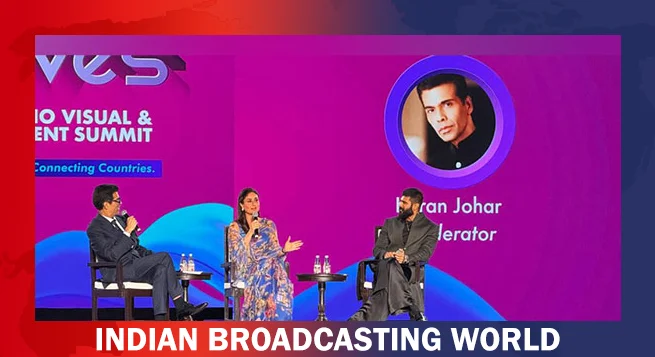 Spielberg recognised me from ‘3 Idiots’, says Kareena at WAVES 2025
Spielberg recognised me from ‘3 Idiots’, says Kareena at WAVES 2025 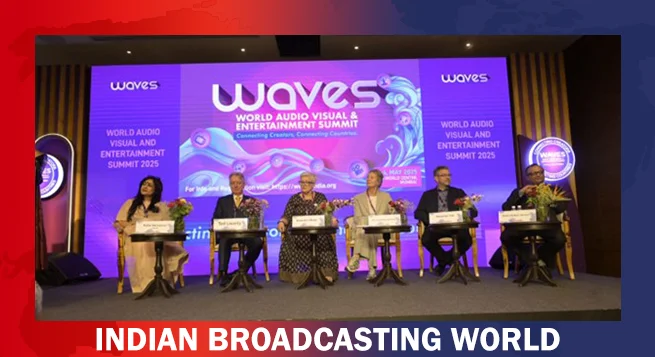 Digital Radio is the future, but analog must co-exist says at WAVES 2025
Digital Radio is the future, but analog must co-exist says at WAVES 2025 



